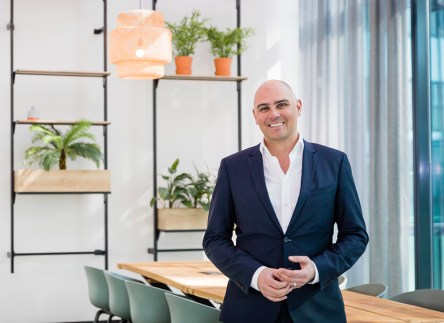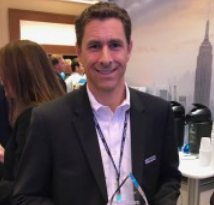Real estate asset management firms are facing extraordinary challenges in the aftermath of the COVID-19 outbreak. Some may emerge from the crisis relatively unscathed. Others might not be so fortunate. Social distancing requirements and work-from-home strategies, prompted by COVID-19, have rapidly amplified the importance of operational and financial data, its accessibility and team connectivity. What matters almost more than the data itself, however, is the means of obtaining it efficiently and using it effectively to benefit clients, investors and other stakeholders. That’s not easily done without the right technology. In the world of real estate asset management, data comprises information that reveals a portfolio’s health, such as revenues, debt, risk, occupancy and sales, along with property-level operations such as energy consumption and accounts receivable. Two distinct groups need this data: operations groups tasked with effective management of the portfolio, property and tenants; and those who focus primarily on investors along with the organisation’s tactical and strategic issues. Some systems compile data from multiple disparate systems, making usable data a moving target. This approach – which prevailed in most property management industry vertical markets until the last couple of decades — is complicated, cumbersome and prone to error. For asset and operations managers to remain nimble, act proactively, anticipate and react decisively, they need a way to stabilise and gain instant access to it. That’s why connectivity is the key value proposition in asset management and the reason that sophisticated yet user-friendly asset management software applications that collect, process and apply such data across the asset management lifecycle are increasingly relevant. All user groups benefit when the data their business depends on is readily available. Fortunately for them, today’s asset management technology platforms assimilate all asset management information at the property and portfolio levels and...
Industry Perspective
From Greg Slang of KETTLER
As multifamily real estate continues to adapt to new standards of social distancing and uncertain economic times, a longtime asset management executive sees signs of positive momentum for the industry. Greg Slang is executive vice president of asset management at KETTLER, a national recognized developer/owner/operator of multifamily assets in the Washington D.C. region as well as Florida and the Carolinas. With a portfolio that includes apartments in all asset classes from affordable to A+, Slang is positioned to observe the impact of the COVID-19 pandemic across property types and resident experiences. He recently sat down for an interview with Dhar Sawh, industry principal at Yardi, to speak about multifamily’s adaption to the changing times and KETTLER’s particularly swift response. You can listen to the full commentary here. Having worked through 9/11 and the Great Recession of 2007-2008, Slang provided an insightful look at the state of the multifamily industry from an asset management perspective. Among the topics covered in his interview: remote work, resident considerations during COVID-19, and what to look out for next. “This all happened very quickly,” said Slang. “It has been very difficult from a shock perspective. I liken it to 9/11, where one day all seems to be fine, and the next day, the whole world seems to be thrown into disarray.” Multifamily has reacted quickly to the social distancing circumstances required by COVID-19, incorporating the use of virtual tours, online leasing and other proactive measures. The only things that truly can’t be resolved remotely are major maintenance concerns. Slang said that the KETTLER team has reacted well to working remotely and is continuing to serve their residents effectively from a safe distance. That may be the norm in the months to come, he noted. “We were very surprised at...
Chasing Excellence
IREM Global Summit
Real estate industry leaders and professionals are heading to San Francisco on September 23-26 for the 2019 IREM Global Summit. IREM is the largest organization dedicated to advancing the profession of real estate management, and Yardi is a proud sponsor of IREM’s must-attend annual event which hosts approximately 800 top real estate management professionals from across the U.S. and around the world. “The IREM Global Summit provides a fantastic opportunity for real estate managers to get together and prepare for exciting new opportunities and challenges facing our changing industry. Yardi is proud to participate in this important event and share our innovative solutions including Yardi Elevate for big data that drives results for commercial and residential managers pursuing excellence,” said Esther Bonardi, vice president of marketing at Yardi. IREM has designed the event to expand knowledge through educational sessions that support professional growth and leadership development. Attendees come from the U.S. and Canada, China, Japan, Korea, South Africa and Brazil and gain value meeting with colleagues to build camaraderie and stronger relationships. Read on for the top three ways to connect with Yardi at the IREM Global Summit. Attend Educational Sessions This year’s schedule features 19 hours of educational sessions to empower attendees to move their careers forward. Sessions are based on real-world situations that property managers face daily, from opportunities to use technology to work smarter to difficult interpersonal scenarios. Don’t miss a potentially life changing session sponsored by Yardi. Join the famous sketch comedy group Second City for “Facing Forward: Using Improv to Embrace the Future” on September 26 at 8:15 a.m. In this fun interactive workshop, improvisers will lean into moments of uncertainty to see them as pure potential and will learn improv techniques to help them embrace the future and...
Investment Insight
From Rob Teel of Yardi
Investment capital isn’t in short supply—plenty is available from China, Europe, the U.S. and other sources. So why are real estate investors working harder, yet finding fewer high-return opportunities? One dampening factor is increased investor choosiness arising from due diligence activities that increased starting in 2009, when a low market virtually guaranteed returns and asset prices would rise. Plus, the regulatory climate has thickened. But the main problem today is that the marketplace, especially the U.S. with its abundance of capital, is chasing relatively few investment opportunities. Can fund managers under pressure to place money they’ve raised find, evaluate and capitalize on good deals? Yes, says Rob Teel, Yardi’s senior vice president of global solutions—if they have the means and ability to unearth opportunities they ordinarily wouldn’t consider, or even know about. We asked Teel for insight into how technology can be an ally in the effort to identify investment opportunities and manage assets through their life cycle. Q: What’s a key trend among the real estate property owners, managers and investors you encounter? Teel: A lot of people are seeing the advantage of automating investment accounting, performance measurement and investor reporting with an integrated investment and asset management system. They realize that having all decision-making tools within a single system exceeds what’s possible with spreadsheets and separate databases. Managers dealing with hundreds of combined funds, entities, properties and investors are happy to be free of manually uploading data, relying on cumbersome spreadsheets and mining data from separate systems. Q: What matters the most to investment managers as they evaluate potential acquisitions? Teel: Getting a complete picture that helps them decide to acquire an asset and the best option and optimal time for renovating or selling it. This underscores the importance of automating the...
UK Asset Management
Recovery + Reinvention
Asset Management companies in the UK have experienced several years of growth due to foreign capital flowing into the country during the lean years. As rents stabilize, the rate of growth is clearly unsustainable. Yardi brought together several asset management experts to discuss how asset management will reinvent itself during economic recovery and prosperity. According to Richard Williams, managing director asset services UK, CBRE , The answer boils down to the company’s country of origin. Far Eastern and Middle Eastern investors continually require traditional asset management services. “That’s where most of our team’s work has come from in the last year. Although they tend to buy trophy properties, we spend a lot of time teaching them the fundamentals of asset management. It’s impossible for them to do this from Asia where they’re based.” Locally, there is a different story. Shaun Hose, director of asset management, BNP Paribas Real Estate, explains, “Now, the market has improved to such an extent that the yield shift alone won’t meet target returns. Institutional investors are looking for assets they can intensively manage and have levers to pull. The regions are high up on the agenda for UK investors as occupier markets come back, but London markets continue to be dominated by foreign investors.” This leaves local investors seeking a select few assets that will offer the value that they need: core plus assets with both income and an angle, and doughnut assets that are inside the M25, but outside of central London. Such properties include multi-let industrial, or distribution centres, with their low vacancy rates, resilience, and growing popularity. Such centres are often occupied by online retailers, powerhouses whose bravado is far from diminishing. There is also a notable amount of obsolete properties that could use a second wind....





